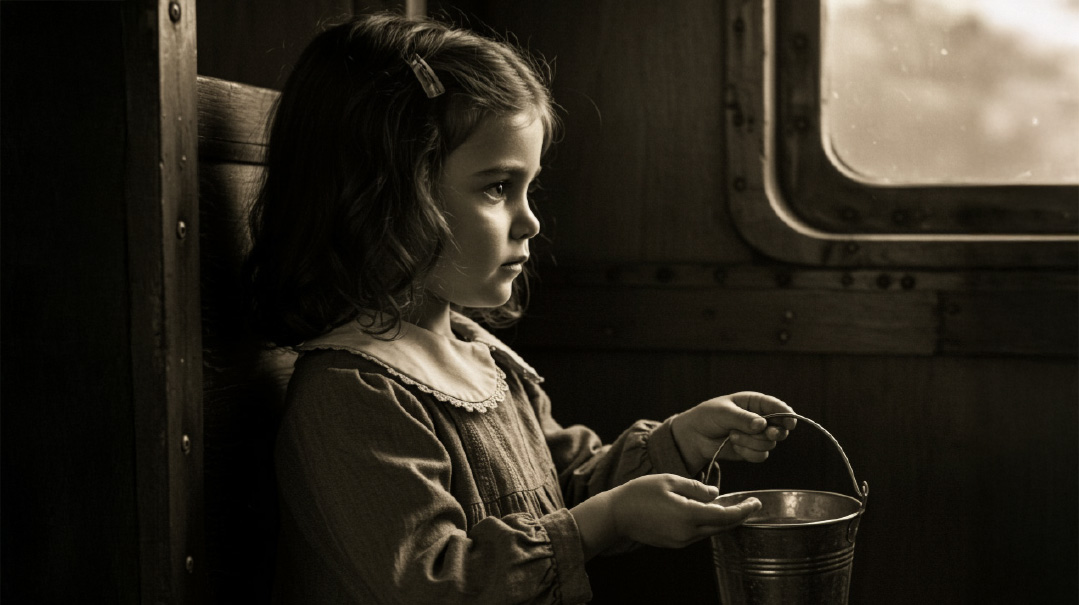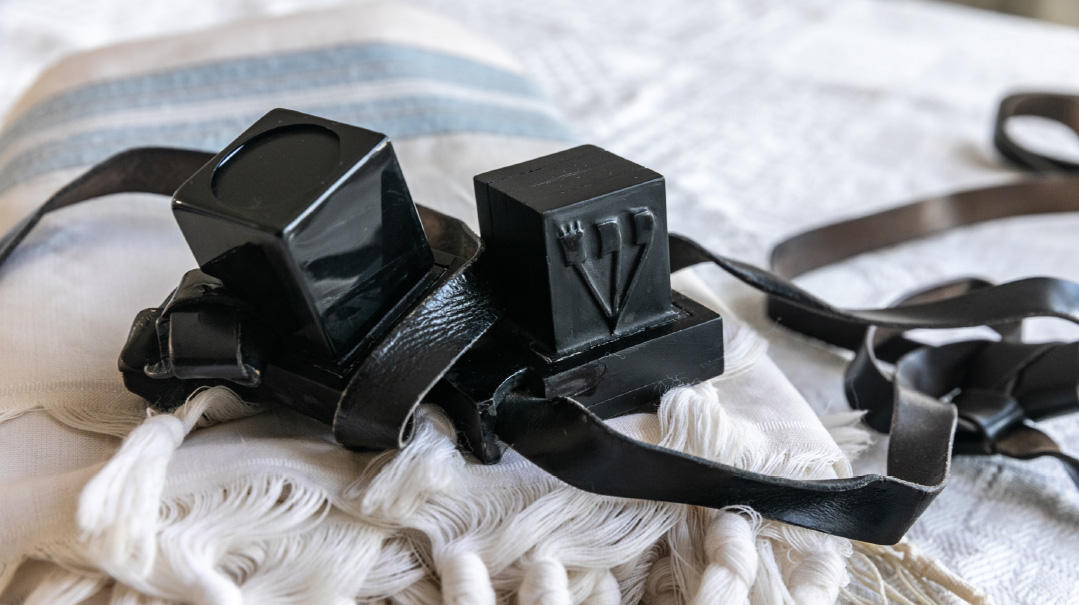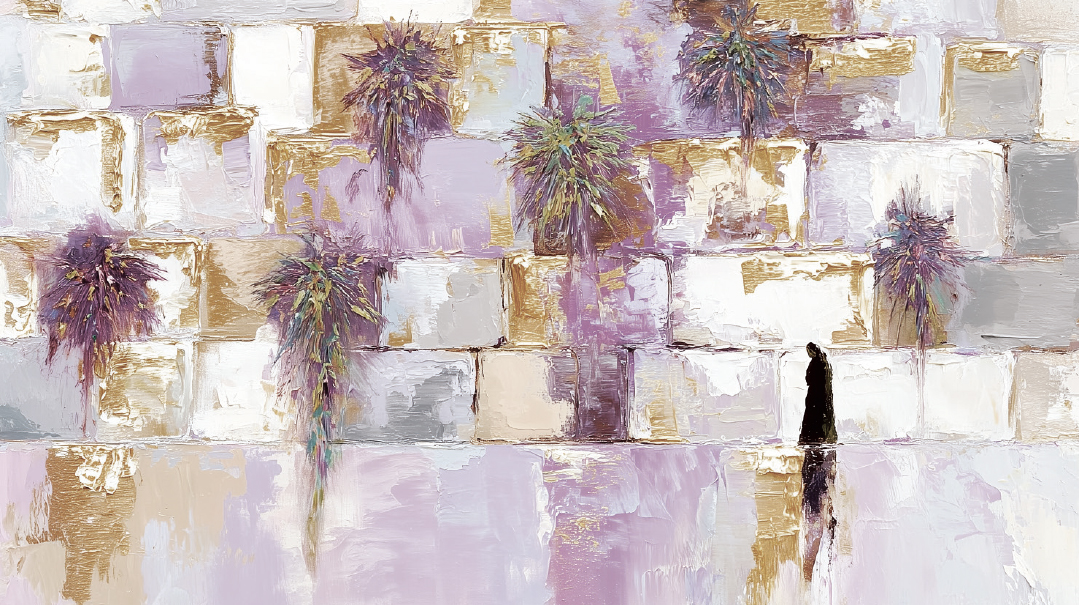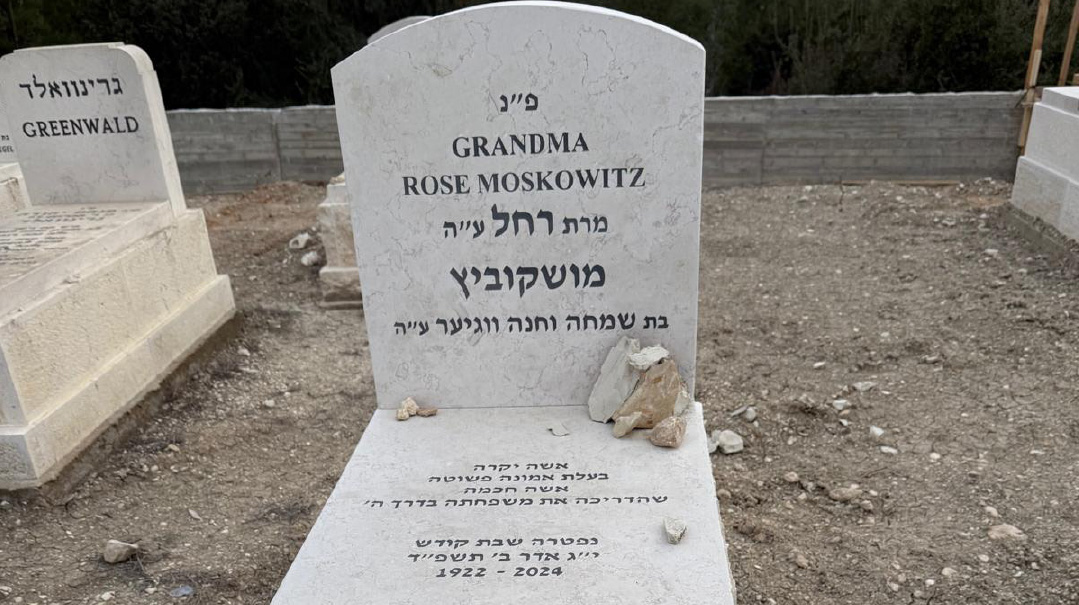Esterke’s Spar
| April 8, 2025“I have kvestions for the Ribbono shel Olam, but right now, I don’t need the answers”

AS I was reviewing the Haggadah recently, I stopped at Ha Lachma Anya. The words opened a floodgate of memories of a mainstay of my youth, Mrs. Spiegel a”h — my friend’s grandmother and our family seamstress.
Mrs. Spiegel was a powerhouse of inspiration. She survived Auschwitz, broken and alone, but she forged on to build anew. The Nazis had robbed her of her family, her shtetl, her world — but not her emunah. Sadly, liberation was not the end of her troubles; the memories haunted Mrs. Spiegel for the rest of her life.
One particular memory tormented her. Suffocating in the mangled masses on the train to Auschwitz, she traveled with her older sister and her little niece, Esterke, who was about five or six. For days, neither a morsel of food nor water passed their parched lips.
“A bissel vasser,” her niece begged, over and over, her voice growing weaker each time. “Vasser, vasser.”
Esterke’s cries mingled with the moans of people taking their last breaths.
At some point, the train came to a halt, and someone hauled in a few buckets of water. Mrs. Spiegel’s sister managed to grab a pail with a few drops left. As she lifted the bucket to give little Esterke a drink, a baby began to cry. Esterke looked up at her mother.
“Ich bin nisht durshtig, Mamme, loz di bubbele trinken [I’m not thirsty, Mamme, let the baby drink].”
Mrs. Spiegel shared this story often. “How could the life of such a sweet tzadeikes be snuffed out? How could such a precious angel be made to suffer?”
She did not expect me to have an answer – and she didn’t need one.
“I have kvestions for the Ribbono shel Olam, but right now, I don’t need the answers,” she’d say. “Ven I get to the next world, den I vill ask Him.”
She was not afraid of dying. I saw her as an embodiment of “Oz v’hadar levushah vatis’chak l’yom acharon — She wraps herself in might and splendor and laughs about her final day.”
It was hard for Mrs. Spiegel to share the bitter story about her niece, and it was hard for me to hear. But I was deeply moved by Esterke’s strength. She was just a child, in such dark times, but her middos radiated well beyond her years.
Some, though, need to be taught young Esterke’s spirit of compassion. I once read a fascinating article by Mr. Howard Schultz, the former CEO of Starbucks, which originally ran in the Columbia Business School magazine. He wrote about an encounter he and a group of business magnates had with Rav Nosson Tzvi Finkel ztz”l, the legendary Mirrer rosh yeshivah. No one in the group had known that Rav Nosson Tzvi was severely afflicted with Parkinson’s disease, he related, and when the Rosh Yeshivah sat at the head of the table, the group averted their gaze out of embarrassment — until they were all startled by a bang on the table.
“Gentlemen, look at me, and look at me right now.” Now his speech affliction was worse than his physical shaking. It was really hard to listen to him and watch him. He said, “I have only a few minutes for you because I know you’re all busy American businessmen.” You know, just a little dig there.
Then he asked, “Who can tell me what the lesson of the Holocaust is?” He called on one guy, who didn’t know what to do — it was like being called on in the fifth grade without the answer. And the guy says something benign like, “We will never, ever forget…” And the rabbi completely dismisses him. I felt terrible for the guy until I realized the rabbi was getting ready to call on someone else. All of us were sort of under the table, looking away — you know, please, not me. He did not call me. I was sweating. He called on another guy, who had such a fantastic answer: “We will never, ever again be a victim or bystander.”
The rabbi said, “You guys just don’t get it. Okay, gentlemen, let me tell you the essence of the human spirit.
“As you know, during the Holocaust, the people were transported in the worst possible, inhumane way by railcar. They thought they were going to a work camp. We all know they were going to a death camp.
“After hours and hours in this inhumane corral with no light, no bathroom, cold, they arrived at the camps. The doors were swung wide open, and they were blinded by the light. Men were separated from women, mothers from daughters, fathers from sons. They went off to the bunkers to sleep.
“As they went into the area to sleep, only one person was given a blanket for every six. The person who received the blanket, when he went to bed, had to decide, ‘Am I going to push the blanket to the five other people who did not get one, or am I going to pull it toward myself to stay warm?’”
And Rabbi Finkel says, “It was during this defining moment that we learned the power of the human spirit, because we pushed the blanket to five others.”
And with that, he stood up and said, “Take your blanket. Take it back to America and push it to five other people.”
IT took a gadol like Reb Nosson Tzvi to impart such a powerful lesson to those prominent executives. But precious, innocent little Esterke knew it from the day she was born. The Jewish heart pulsates with compassion, an insatiable desire to help others. Rachmanim and gomlei chasadim is not what we do — it’s who we are.
Some of the hostages released from captivity in Gaza have shared their harrowing narratives. I’ve been struck by how many of them mentioned the bonds of love they shared with their fellow captives and how, despite their desperate situation, they managed to share the little they had with each other. One saved some of his paltry meal for a starving young man, another gave her blanket to a freezing friend, and one braided her comrades’ hair to give them a sense of dignity. They, too, embodied the essence of a Jew; to give when there is really nothing to give but your love.
Every year, at the start of the Seder, we uncover the matzah and recite “Ha lachma anya — This is the bread of affliction… Kol dichfin yeisei v’yeichol — anyone who needs a meal should come and join our feast.” Perhaps there is a hidden message in the timing of this invitation. Holding the matzah, “poor man’s bread” — a flat, flavorless cracker — we invite all who are hungry to come partake.
This is the secret of the Jewish spirit, our eternal spark. Pass the blanket to someone else. Let the bubbele drink the vasser. Give your friend an extra grain of rice, a small slice of stale pita. That’s all you’ve been given, it’s all you have, but it’s enough to do a chesed for another Yid.
We may not have much, but we share it together.
Rabbi Akiva Fox lives in Eretz Yisrael and teaches in American yeshivos and seminaries.
(Originally featured in Mishpacha, Issue 1057)
Oops! We could not locate your form.






